Paleo-pusher Pete Evans’ MKR career is ‘on thin ice’ after the baby diet controversy
PATIENCE is wearing thin for Pete Evans at Seven after the My Kitchen Rules judge’s baby paleo diet controversy. Sources say he could be out the door if he’s not careful.
CELEBRITY chef Pete Evans could be at risk of losing his job on reality show My Kitchen Rules after a series of damaging controversies.
According to sources, executives at Channel Seven increasingly view the outspoken paleo diet advocate as a “liability” for their top-rating series.
The latest furore to engulf Evans came after strong warnings from health professionals that his new paleo recipe book for babies could lead to death.
His publisher Pan Macmillan dumped the project but Evans vowed to push ahead and release it digitally himself, causing outcry in the medical community.
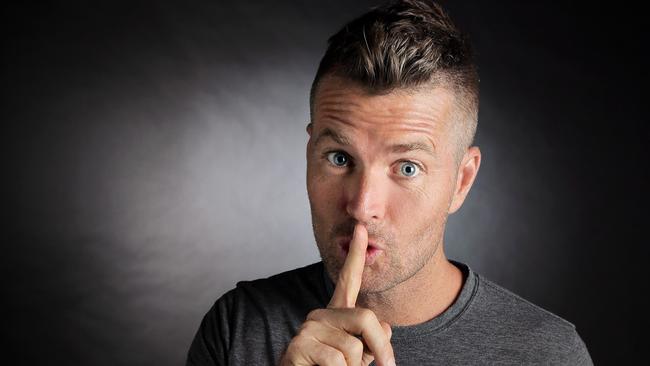
The fringe foodie has become more vocal in recent years about his adoption of the trendy no-carbohydrate “caveman” diet, which allows poultry, fish, eggs, fruit, vegetables and lots of meat, while banning grains, legumes and dairy.
It’s understood Seven instructed Evans to keep a low profile while MKR was on air, but he’s been subject to numerous embarrassing headlines thanks to his contentious statements and views.
“He’s on thin ice at (the network),” one source said.
A spokeswoman for the network denied these claims and insisted Seven stands by its star. Evans didn’t respond to multiple requests for comment.
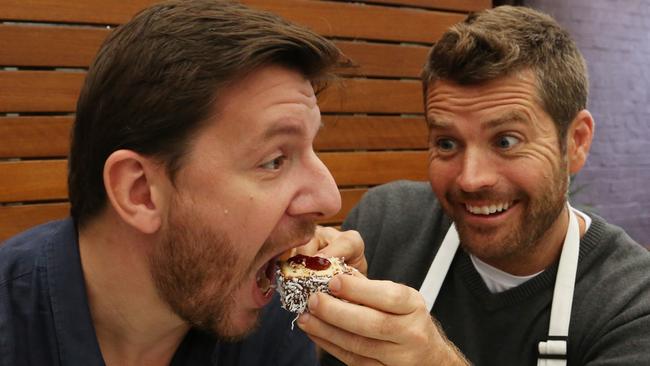
Doctors have expressed concern about his various claims regarding the health benefits of paleo, with Evans saying it could help shrink tumours, lead to cancer remissions, assist in treating autism and stop asthma.
The chef also seems to imply that it may ease the risk or symptoms of “mental illness, including dementia and Alzheimer’s disease”.
On his Facebook page, which boasts more than 792,000 fans, he regularly shares glowing “miracle” testimonies from his paleo followers who’ve “healed themselves through food” of ailments such as auto-immune disease, clinical depression, melanoma cancers and migraines.
One particularly concerning comment from a woman with leukaemia told of how she planned to use paleo as a way to “get off my chemotherapy medication”.
Various experts strongly discount the purported benefits promoted by Evans and his followers, pointing out there’s little-to-no scientific evidence to support the claims.
Furthermore, multiple health bodies around the world have warned about the potential dangers of strictly following the paleo diet, with the British Dietitian Association advising people against a one-size-fits-all approach.
The World Health Organisation also cautioned a no-carbohydrate diet could cause poor brain function and increase the risk of bowel cancer, while a diet with a high intake of meat could lead to cancer and heart disease.
Away from paleo, Evans is a vocal opponent of the fluoridation of drinking water.
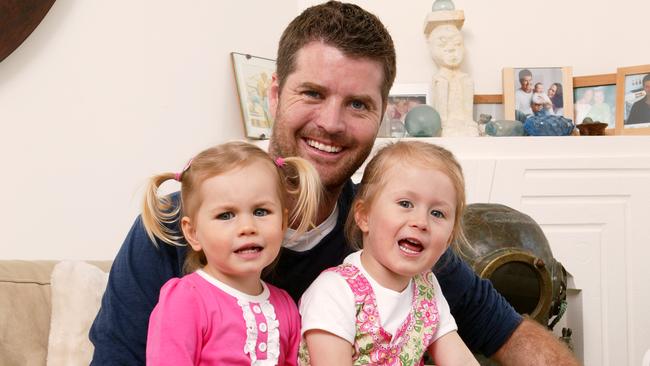
Despite the expert criticism of his many views, Evans continues to vocally and at times militantly spout them, to the increasing frustration of his bosses at Seven, sources said.
The network dismissed what it called “useless gossip”, denying Evans’ job was at risk and saying it supported his extreme views on paleo.
“Pete’s genuine passion for a healthy life via a healthy lifestyle and a healthy diet is part of why the audience and Seven have so much respect for him,” the spokeswoman said.
“Pete is genuine about everything he does and, Seven supports Pete.”
Even if he manages to hold on to his lucrative judging role on MKR, several marketing and media experts believe his conduct could still cost him in other ways.
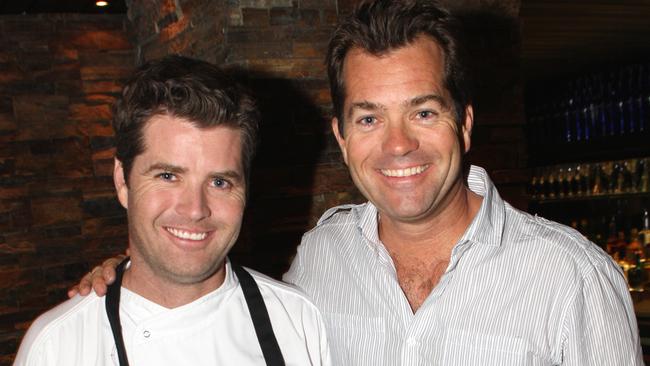
Advertising identity Dee Madigan, executive creative director of Campaign Edge, said mainstream brands would be steering clear of working with Evans because of some of his views and the negative attention they receive.
“For a while, you could’ve put Pete Evans’ (behaviour) down to being a bit eccentric but when you’ve got health professionals saying his book could kill babies, it’s a whole different kettle of fish,” Madigan said.
“When it’s dangerous as opposed to just out there, you’re in trouble.”
Brian Levine, director of celebrity brokerage agency Blinc International, said an endorsement deal could be worth six figures for a big-name celebrity.
“If you’re a media personality with good public recognition, you could get somewhere between $200,000 and $400,000 for a 12-month media campaign … that includes a TV ad, a photo shoot, an appearance and some social media posts,” he said.
“The celebrity needs credibility though. If a brand has an ambassador with poor credibility, they’re off to a really bad start.”
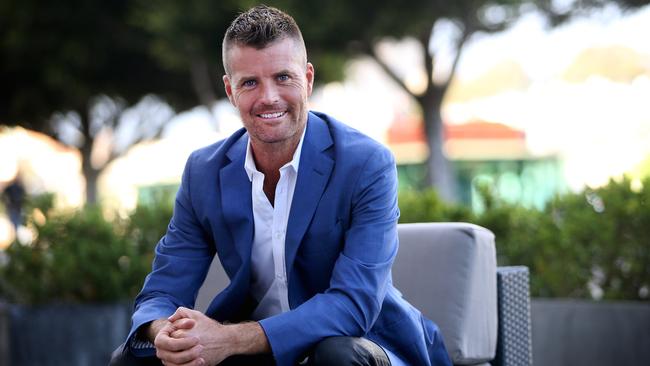
The old adage that all publicity is good publicity doesn’t ring true, according to Sean Pickwell from Waterfront Entertainment Group, who sources celebrities for advertising campaigns.
He believes Evans could be rubbing both brands and fans up the wrong way, he said.
“Pete had a persona of being quite gentle,” Pickwell said.
“He’s on a big mainstream show and is a very credible chef, but he’s starting to pigeonhole himself with these niche views. It would restrict his appeal to brands. He’s narrowing himself.”
However the embattled chef probably doesn’t care about the money that much, he said.
“I think he’s doing and saying these things because it’s what he believes.”
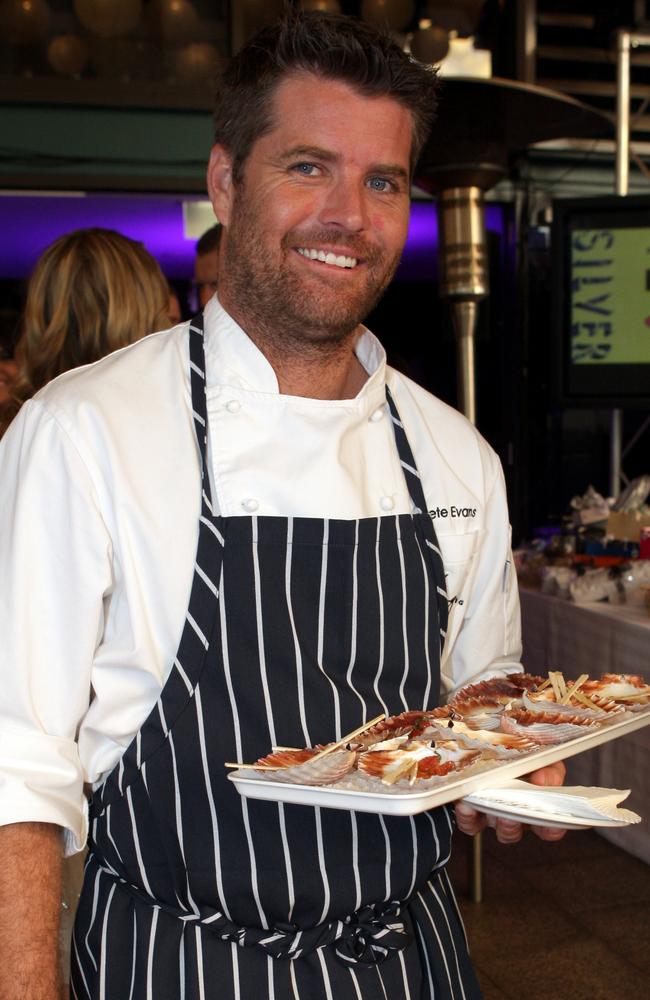
While Evans could be shutting many big doors, his fringe views might be opening others, with potential endorsements for like-minded products, Levine said.
But as Madigan points out, those types of brands don’t deliver the same pay packets as the mainstream companies Evans is used to working with.
“If his bank account begins to suffer, I suspect he might start to rethink what he says — at least in public,” she said.
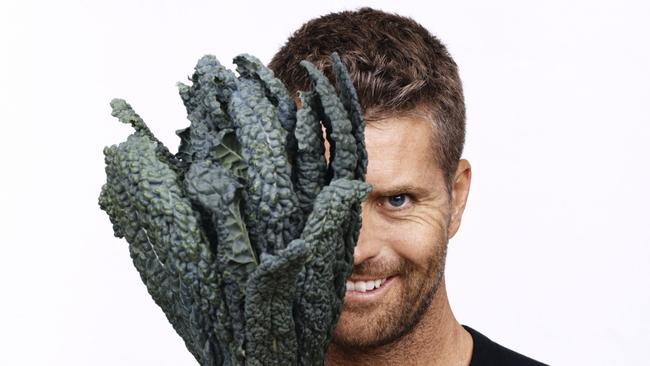
Evans didn’t respond to a long list of questions from News Corp Australia. However he told one of his paleo seminars in Victoria earlier this month that he relished the controversy.
“I bet you I’m on the … news right now — ‘Pete Evans wants to kill your babies’,” he told the crowd. “I love it. It gets me up in the morning, puts a smile on my face.”
A generic disclaimer on Evans’ Facebook page said visitors should not “use the information found … as a substitute for professional healthcare advice”.




